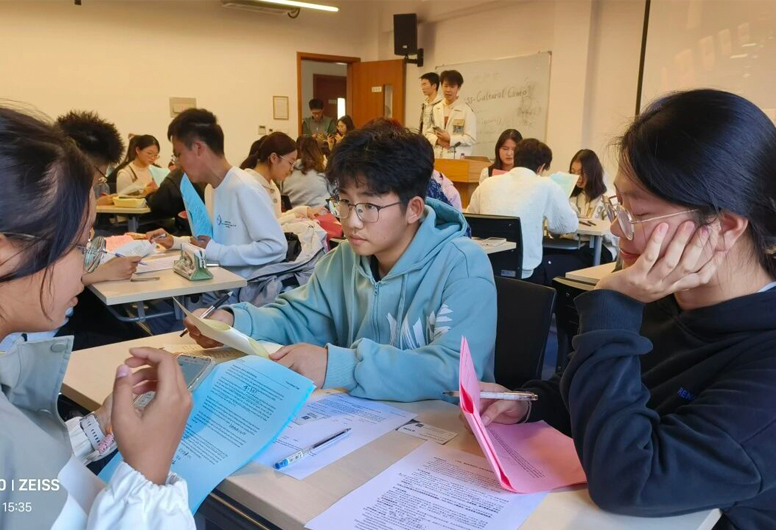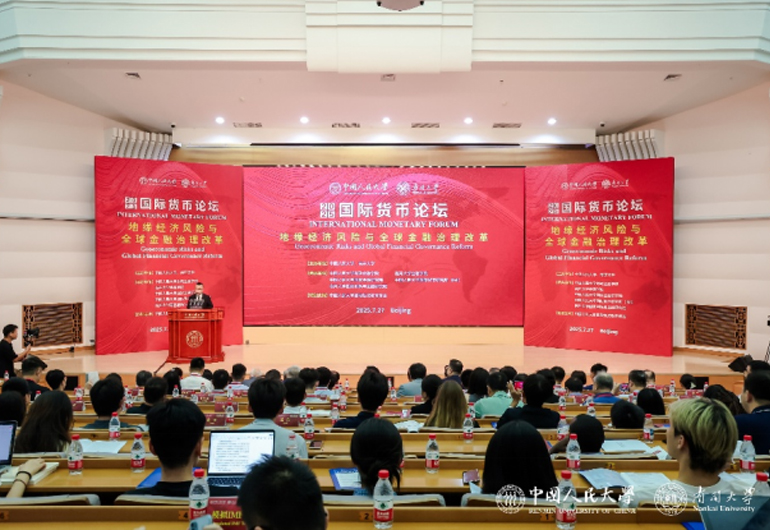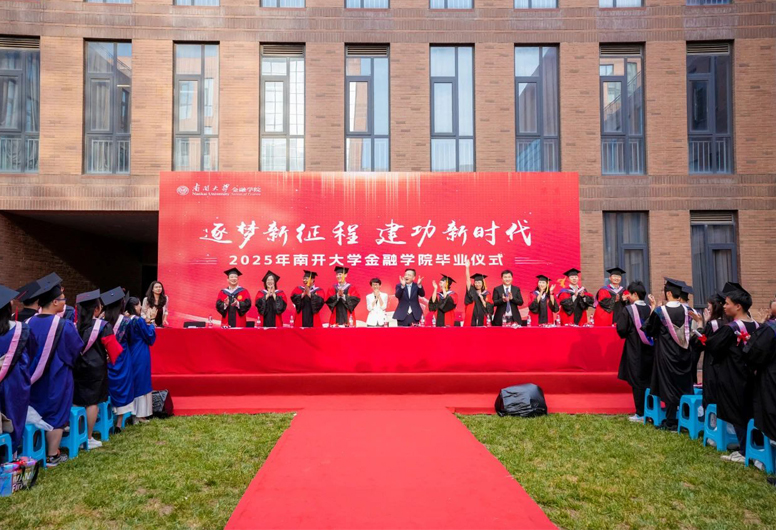The 2022 China Fintech Academic Annual Conference was Held in the Cloud
This year marks the 40th anniversary of Nankai University's resumption of financial education. On April 23, the 2022 China Fintech Academic Annual Conference was held in the cloud, and more than 300 experts and scholars from more than 100 universities, scientific research institutions, financial institutions, and academic journals at home and abroad participated in the meeting online to conduct in-depth discussions on the latest developments, key issues and academic achievements in the field of financial technology, contributing to the academic strength of global financial technology innovation.
The 2022 China Fintech Academic Annual Conference is initiated by the FinTech Education and Research 50 Forum, hosted by the School of Finance of Nankai University and more than 30 institutions, and undertaken by the Institute of Digital Finance and the Fintech Research Center of the School of Finance of Nankai University, aiming to provide a high-quality academic exchange platform for financial scholars and practitioners at home and abroad, promote fintech research, and promote the healthy, stable and sustainable development of China's fintech.
Cao Xuetao, academician of the Chinese Academy of Engineering and president of Nankai University, said in his opening speech that digitalization has profoundly changed the world civilization system, a digital revolution is taking place in the field of money and finance, and the international monetary and financial system has begun to be reconstructed due to digitalization. China's financial digitalization process is also accelerating. Especially during the epidemic, financial technology has strengthened the financial service guarantee in special periods. These changes have put forward new problems and new requirements for financial education and research. It is expected that the participating experts and scholars will have in-depth exchanges and collide ideas, jointly propose Chinese solutions and make Chinese contributions to the innovation and development of the financial technology field.
Cao Xuetao stressed that cultivating compound high-level talents that meet the needs of contemporary economic and social development, and promoting the solution of major propositions of national development with discipline construction, is a key move to strengthen the deep cross-integration of disciplines. The School of Finance of Nankai University should further explore the cross-integration of financial disciplines with data science, complex science, artificial intelligence, environmental science, etc., aim at the strategic development needs of the party and the state, focus on key areas such as digital finance and ESG, adhere to the problem-oriented, strive to make original contributions in the field of digital + finance + governance, and cultivate more new composite financial talents who can seize the commanding heights of the future. At the same time, this year is the 40th anniversary of the restoration of financial education at Nankai University, and it is hoped that such a digital academic event with the advanced nature of the times will open a new chapter in Nankai's financial education.
Liao Li, chairman of the FinTech Annual Conference and executive vice president of the Wudaokou School of Finance of Tsinghua University, introduced that the FinTech Academic Annual Conference has been successfully held for two sessions in 2019 and 2021, attracting extensive participation from scholars at home and abroad and winning unanimous praise. The influence of this year's academic annual meeting has been further expanded, and more than 250 papers have been submitted by well-known universities and scholars at home and abroad, involving the latest research results in many financial technology fields such as big data, machine learning, banking technology, credit market, capital market, etc., and have been supported by several high-level academic journals at home and abroad. It is expected that the participating scholars will exchange and learn from each other, enlighten their wisdom, and jointly contribute to education and research in the field of financial technology.
Jin Chengwu, director of the editorial department of Economic Research, delivered a speech as a representative of academic journal units. He said that reading is a combination of readers, authors, and editors. As a journal editor, I am very pleased to see more achievements in the field of financial technology emerge at the annual academic meeting, listen to the author's ideas, and understand the evaluations of all parties, which is of great benefit to better carry out journal construction. Fintech is also a combination of science and technology, and we look forward to seeing more highlights of information technology and financial theory, and these basic original research will provide solid underlying theoretical support for innovative exploration at the technical and policy levels.
After the opening ceremony, Hou Kewei, Chair Professor of Ohio State University and Editor-in-Chief of Journal of Empirical Finance, Han Bing, Chair Professor and Editor-in-Chief of Financial Management, University of Toronto, Canada, Zhang Wei, Chair Professor of Tianjin University and Executive Editor of Journal of Management Science, Fan Xiaoyun, Distinguished Professor of Nankai University and Executive Vice Dean of the School of Finance, and Blu Putnam, Chief Economist of the Chicago Mercantile Exchange, Li Tao, Vice President of the Fintech Training Institute of CCB Training Center of China Construction Bank, delivered a speech entitled Factor Pricing and Anomalies: An Investment Perspective, Forecasting Option Returns with News, Social Media and Capital Markets, Financial Risk in the Process of Digitalization, Event Risk Challenges for for the annual meeting Keynote speech on Financial Risk Management, Open Sharing, Collaborative Innovation: Fintech Exploration of China Construction Bank.
The two-day annual conference set up a total of 38 sub-forums in Chinese and English, and the participating scholars conducted in-depth discussions on 26 Chinese and English topics such as credit market, financial technology, small and medium-sized enterprises, blockchain and digital currency, banking and financial technology, household finance, digital finance, alternative data, behavioral finance, machine learning, and capital markets.








